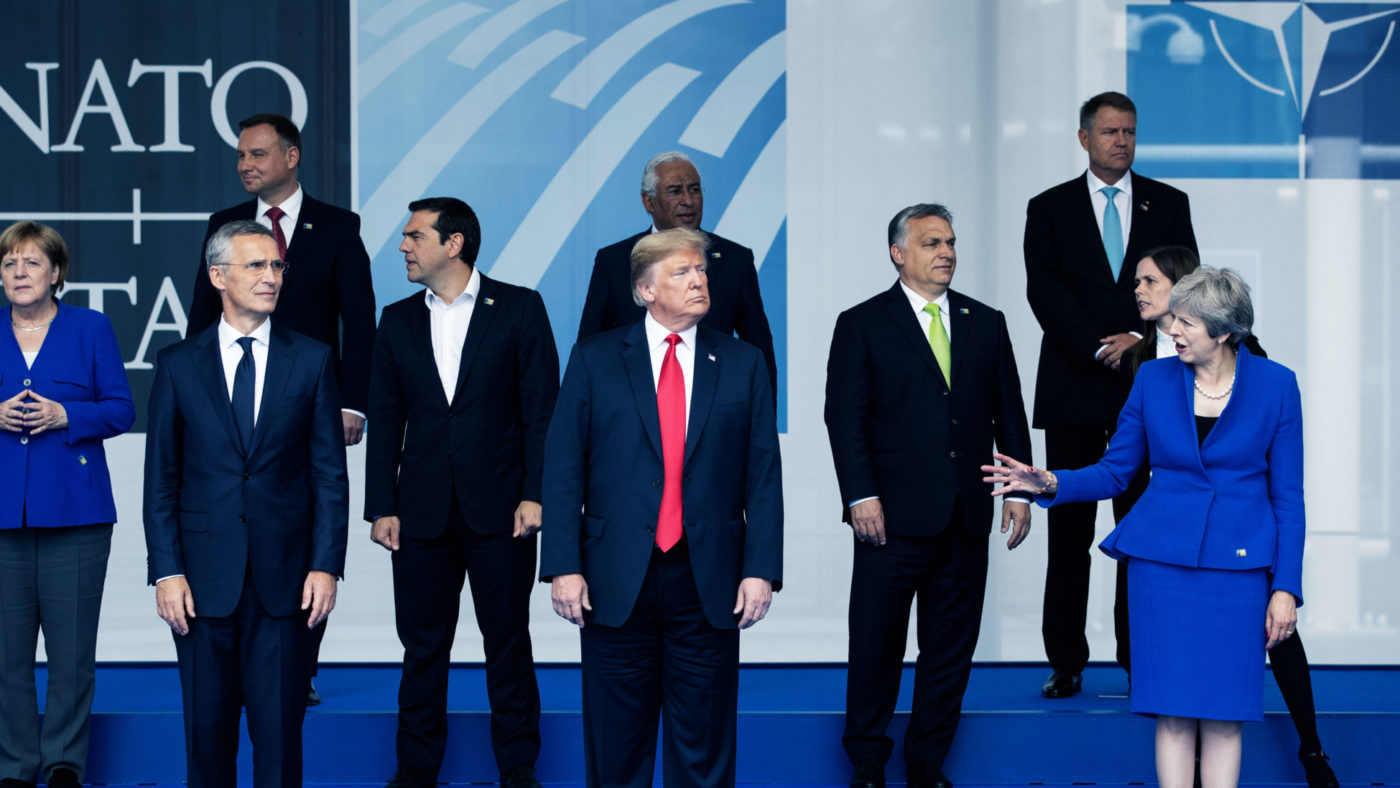By this time next week, the security of Western democratic nations may have been irreparably damaged. It is at least a plausible outcome that a US president who openly despises the country’s allies and the policies of his postwar predecessors will have wrecked the transatlantic alliance.
I hope this is mere alarmism but the risks are not trivial. The tone for today’s NATO summit in Brussels was set when President Trump told Jens Stoltenberg, the organisation’s Secretary-General, over breakfast that Germany is “totally controlled by Russia”. This was on the grounds that Germany purportedly gets 70 per cent of its energy from Russia (the real figure is less than 10 per cent).
If Mr Trump can be factually reckless and gratuitously offensive regarding America’s allies, he is simultaneously obsequious to autocrats and boundlessly gullible concerning his own powers of negotiation. Hence the danger in his meeting next week with President Putin, a ruler who has altered the boundaries of Europe with a pitiless campaign of aggression and annexation against Ukraine.
This is a terrible prospect and there is nothing America’s allies can do about it. Lacking any plausible diplomatic options, they might as well tell the truth: the head of state of the world’s leading democracy is morally and intellectually unfit for public office and his behaviour is unAmerican.
Addressing Congress in March 1947, President Truman encapsulated a truth about the international order that has underlain US diplomacy ever since: “We shall not realize our objectives…unless we are willing to help free peoples to maintain their free institutions and their national integrity against aggressive movements that seek to impose upon them totalitarian regimes.”
For all the errors, sins and sometimes crimes of postwar US foreign policy, that principle is vital. The Nato alliance was founded not through American national aggrandisement but as an act of solidarity binding together free peoples in response to direct aggression.
Among the principal begetters of the alliance was Ernest Bevin, Foreign Secretary in Clement Attlee’s Labour government. In March 1948, just weeks after a Communist putsch overthrew democracy in Czechoslovakia, the governments of Britain, France and the Benelux countries established the Western Union. Truman immediately declared American support for the venture, which led to the formation of NATO the following year.
Contrary to Mr Trump’s obnoxious remarks, modern Germany has been deeply protective of its liberty and its liberalism, and Nato has been crucial in safeguarding both. The Western democracies committed themselves, not least through America’s selfless provision of Marshall aid, to rebuilding the war-shattered German economy and establishing in 1949 a constitutional democracy in the western part of that country.
Political parties on both wings of the spectrum in the Federal Republic of Germany defended their system against totalitarian subversion and threat. When the Soviet Union deployed a new generation of intermediate-range nuclear weapons in Europe in the 1970s, Helmut Schmidt, the Social Democratic Chancellor of Germany, saw the danger of an uncoupling of US and European deterrence and pressed for a response.
The deployment by NATO of Cruise and Pershing missiles in Europe in the 1980s was a potent political issue at the time but was completely justified to deter Soviet adventurism and reinforce transatlantic solidarity. (Bizarrely, having been in government when the euromissile deployment was first mooted, Labour opposed the deployment of Cruise and justifiably got hammered in the 1983 general election for its commitment to unilateral nuclear disarmament.)
This is how NATO has worked. Unlike the institutions of the old Soviet bloc, NATO is an alliance of choice rather than compulsion. Its member-states are democracies whose governments can change political complexion overnight and whose diplomatic positions can rankle. Yet no government in any member state, till now, has fundamentally queried the justification of collective security itself. And
that is the position of NATO’s strongest power, the United States.
It’s one thing to press for a greater budgetary contribution to defence from NATO’s member-states: that was the stance too of the Obama administration, and it’s a reasonable expectation. But Mr Trump goes far beyond this truism. He explicitly treats NATO as a transactional relationship in which the US will only meet its commitment to the security of Western Europe if other member-states have “fulfilled their
obligations to us”.
That’s not consistent with a treaty of mutual defence and it’s ignorant of the history of the alliance. The only time that Article 5 of the North Atlantic treaty, enshrining the principle of collective defence, has been invoked was in support of the US after the attack on its mainland by al-Qaeda terrorists in 2001.
That’s what collective security involves: the predictability of collective action when one nation’s security is assaulted. NATO has also collectively defended the rights and very existence of threatened peoples in Europe, notably in stopping the genocidal campaign by Slobodan Milosevic, the Serb president, against Kosovan Albanians in 1999.
Having undermined the G7 summit last month with economically destructive policies of protectionism and abusive remarks about the United States’ closest neighbour, Mr Trump is liable to try the same trick with NATO. He will then coast into a meeting with Mr Putin heedless of the way his inexperience and unabashed ignorance will be exploited. This is no way for a mature democracy to behave and there is no reason for European governments to maintain a discreet silence about it.
Previous US administrations have undoubtedly made poor decisions but (as in Syria’s civil war, or in multilateral economic coordination) the world generally suffers more from an absence of American influence than from an excess of it. So it is with Mr Trump, who has the loud mouth of a mercurial braggart but the diplomatic standing of a midge. America’s allies and friends should say so.


